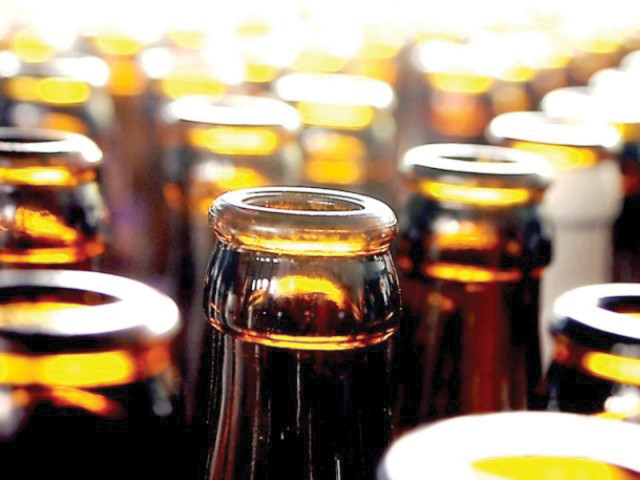Beverage industry: Capacity tax collection drops instead of increasing
FBR suffers revenue loss of Rs478m in July-February of current fiscal year.

From the next financial year, the government is considering introducing electronic monitoring of manufacturing of sugar, beverages, cigarettes and cement. PHOTO: FILE
The federal government has acknowledged that the introduction of capacity tax on beverages is “not an excellent experience” that has so far caused a revenue loss of Rs478 million, dealing a blow to some industry players who had pushed for the change in the tax regime.
“Revenue collection from the industry has so far remained negative 17% or Rs478 million less than the previous fiscal year,” said Shahid Hussain Asad, Member Inland Revenue Policy of the Federal Board of Revenue (FBR), in a briefing to the National Assembly Standing Committee on Industries and Production.

The committee had called FBR officials in order to review the impact of capacity tax on the beverage industry, the rationale behind it and the revenue loss after the change in the regime.
In June last year, the FBR had introduced a fixed tax on the beverage industry. Before that, it was collecting taxes at the rate of 6%.
The federal government levied the capacity tax on the insistence of three manufacturers, who are said to be financiers of the PML-N and one having links with the Pakistan Tehreek-e-Insaf, according to sources.
After recording a shortfall, the FBR increased capacity tax rates in the range of 60% to 70% last month.
Committee Chairman Asad Umar, who is PTI’s member in the National Assembly, came late and joined the meeting when discussions on the beverage industry had come to an end. In his absence, PML-N’s Mian Abdul Manan chaired the meeting.
Umar said he was busy with some other engagements and denied this had anything to do with the meeting agenda.
One of the three players is the younger brother of a senior PTI leader, hailing from southern Punjab, according to the sources.
Shahid Hussain Asad told the panel that during budget-making last year the beverage industry approached the FBR with a complaint that some of the industry players were evading taxes and to check the practice capacity tax should be introduced.
They assured the FBR that tax collection would increase by 25% in the current fiscal year compared to the revenue received in the previous fiscal year. But the results showed that the collection even fell below last year’s level, he said.
“After results of first eight months of the (current) fiscal year, we cannot say it is an excellent experience to introduce capacity tax,” said Nisar Mohammad, Member Customs of the FBR.
The FBR changed the system without taking the Ministry of Industries and Production on board, said Ghulam Murtaza Jatoi, Federal Minister of Industries.
The committee did not take any position and recommended that the government should involve other players of the beverage industry in the consultation process.
“At the time of changing the tax regime, the FBR met with representatives of only two MNCs and ignored the rest,” said committee member Isphanyar Bhandara, who is PML-N’s member of National Assembly on a reserved seat.
The government could not force the will of the two bottlers of Faisalabad and Gujranwala on the entire industry, he added.
Bhandara said the decision to change the tax regime was taken behind closed doors, forcing majority of the players to seek relief from the Lahore High Court. He suggested that supervisory clearance was the solution to tax evasion.
From the next financial year starting July, the government was considering introducing electronic monitoring of manufacturing of sugar, beverages, cigarettes and cement, said Nisar Mohammad. A team of the FBR was currently visiting Germany and Turkey to review the electronic system, he said.
Published in The Express Tribune, March 18th, 2014.
Like Business on Facebook, follow @TribuneBiz on Twitter to stay informed and join in the conversation.



















COMMENTS
Comments are moderated and generally will be posted if they are on-topic and not abusive.
For more information, please see our Comments FAQ